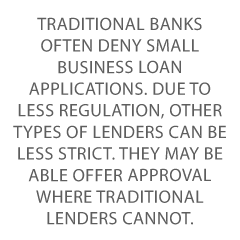What are industrial banks? What makes them different from commercial banks? More importantly, are they a better source of lending for small businesses? Let’s find out.
Industrial Banks Are Not New
These banks are also called Industrial Lending Companies (ILCs). They have roots way back in the early 1900s. That’s when large companies sometimes offered banking services to their employees. Some of these later ventured into the commercial banking realm. In fact, you’ll probably recognize a few. For example all of the following crossed over from industrial bank to commercial.
- Goldman Sachs
- American Express
- Merrill Lynch Bank USA
- Morgan Stanley Bank
- GE Capital Bank
- And GMAC Bank
Industrial vs. Commercial Banks
The difference between industrial and commercial banks relates to services and structure.
| Industrial | Commercial |
| Longer repayment periods, often for 15 or 20 years | Financing and repayment periods are typically shorter periods of time |
| Do not offer checking accounts. May focus on a single product line, such as auto loans or credit card payment processing | Customers can open savings, checking, or money market accounts and certificates of deposit |
| Offer limited services, usually installment loans for consumers and small businesses | Earn profits from interest-bearing loans they offer to customers, such as mortgages, personal loans, business loans, and more |
| Most are located in Utah | Located throughout the U.S. |
| Many do not have traditional branches | Traditionally offer a number of in-person branches |
| Limited to states that permit them | Exist in all U.S. states |
Currently, only 7 states in the U.S. allow these institutions, and over 90% of these types of banks are in Utah.
Why Use These Banks for a Business Loan?
It’s simple really. Traditional banks often deny small business loan applications. Due to less regulation, other types of lenders can be less strict. They may be able to offer approval where traditional lenders cannot.
Are Industrial Banks Safe?
There is no oversight from the Federal Reserve. However, that does not mean these institutions are unregulated. In fact, deposits are FDIC insured. There is also oversight from the chartering state. Currently, only Utah, California, Colorado, Nevada, Hawaii, Indiana, and Minnesota charter these ILCs.
A Legit Funding Option?
They aren’t a bad option for small business funding. In fact, it may be easier to get approval. However, terms and rates may be higher. Still, to get the most out of all your business funding options, business credit is a must. Find out more about building business credit now. Schedule a free business finance assessment from one of our specialists.


